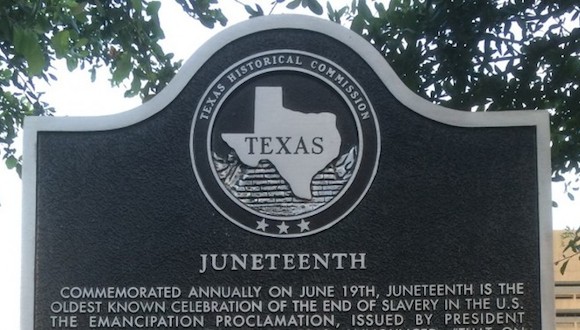 As a child, every year I looked forward to a special holiday that seemed to kick off the summer season of family BBQs and get-togethers. My mom would dress me up in a brand new summer outfit, complete with a new pair of jellies, and I was sure to have my hair freshly plaited and ready for fun. It was a day of celebration and jubilee.
As a child, every year I looked forward to a special holiday that seemed to kick off the summer season of family BBQs and get-togethers. My mom would dress me up in a brand new summer outfit, complete with a new pair of jellies, and I was sure to have my hair freshly plaited and ready for fun. It was a day of celebration and jubilee.
First, we would attend a big parade, starting at MLK Boulevard and ending at the city park right in the heart of our community. From there we would join our family, friends, and neighbors for a huge picnic, including swimming, games, and music. It was a joyful celebration of life, liberty, and freedom.
 For most people, this probably sounds like your traditional celebration of American Independence Day, the 4th of July. But in actuality, this annual holiday – dear to my heart and the heart of so many African Americans in Texas – is known as Juneteenth.
For most people, this probably sounds like your traditional celebration of American Independence Day, the 4th of July. But in actuality, this annual holiday – dear to my heart and the heart of so many African Americans in Texas – is known as Juneteenth.
Juneteenth is the oldest nationally celebrated commemoration of the ending of slavery in the United States. Although the Emancipation Proclamation officially stated that slaves were free as of January 1, 1863, the news did not reach the enslaved African Americans of Texas until two and a half years later, on June 19, 1865. On that day, General Gordon Granger landed in Galveston Texas, bringing news that the war had ended and that enslaved people were now free.
 There have been different explanations as to why the message was delayed:
There have been different explanations as to why the message was delayed:
“Often told is the story of a messenger who was murdered on his way to Texas with the news of freedom. Another is that the news was deliberately withheld by the enslavers to maintain the labor force on the plantations. And still, another, is that federal troops actually waited for the slave owners to reap the benefits of one last cotton harvest before going to Texas to enforce the Emancipation Proclamation” (quote via Juneteenth.com)
In spite of the delay, I can still imagine the joy of my ancestors, as they heard the news.
It is said that although some remained, in shock and disbelief; curious to hear the new terms of this employer/employee relationship. Others dropped their tools onto the ground and ran, rejoicing in their freedom. Many went north, with hopes to flee the oppression of the confederacy. Others went to neighboring states to find family members they had been forced to separate from. Sadly, many of them were met with violence and even more, oppression, encountering “night riders” who would hang and kill them before allowing them to be free. But those who were able to survive pressed on.
For many years, African Americans from Texas commemorated their emancipation by celebrating with family and friends every June 19th. Many of these gatherings were met with resistance by the government through barring the use of public property for the festivities. So African Americans continued to celebrate by moving the activities to rural areas or church grounds. Through the years, the annual celebration became fondly known as “Juneteenth”.
On January 1, 1980, Juneteenth became an official Texas state holiday through the efforts of Al Edwards, an African American state legislator. Today, Texans continue to commemorate and celebrate “Emancipation Day” or Juneteeth.
Here Are A Few Ways You (and your children) Can Learn About Juneteenth:
BOOKS:
- Check out these 10 books celebrating Juneteenth from The Color Of US.
- The New York Public Library has a curated list of picture books and informational texts celebrating Juneteenth.
WEBSITES & ARTICLES:
- Juneteenth.com: The History
- Tolerance.org: Teaching Juneteenth
- Mom.com: 4 Reasons You Finally Need To Pay Attention to Juneteenth
- Texas Highways: How Juneteenth Brought Emancipation to the Enslaved People of Texas
- National Geographic: What is Juneteenth? – and What Does It Celebrate?
- Ben & Jerry: Why Juneteenth Is America’s True Independence
VIDEOS:
- AL.com: What is Juneteenth?
- The Root: This Is Why Juneteenth is Important
- Educational Videos for Students: What is Juneteenth?
What are some ways you will commemorate this special day?













